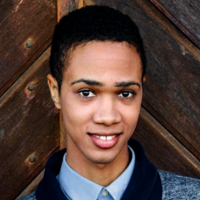Healing People to Heal the Climate: Health and Environmental Philanthropy
November 12, 2019
At the Solidago Foundation in Northampton, Massachusetts, a national funder with a longstanding history of early funding, idea incubating and grassroots grantmaking, I was allowed to research within their climate and environmental justice portfolio. Coming from Michigan and rooted in an academic background of evolutionary anthropology and public health, I was able to apply unique lenses to a three-pronged exploratory process in the space of climate philanthropy. I honed on the network of philanthropy. I found myself exploring the nexus of health and climate through interviews of national funders, organizers, and academics.
I discovered that philanthropy could support positive systemic change by investing in health care models that respond to climate change in significant ways. I saw, as I had suspected, that health and climate go hand in hand. In America, our first responders react to climate crisis events from flooding to fires, our health care professionals respond to illnesses induced by environmental toxins, and frontline communities invest in community health workers to heal ailments provoked by changing environments. I drew some lessons like these from a conference experience with the Funders Network, where we heard from speakers from the federal Center for Disease Control supported Newport, Rhode Island Health Equity Zone [HEZ], an area where community organizing is using health equity to empower the island community. This very focus on funding health equity has grown residents into community health workers, and champions of community health. I continued to draw lessons from interviews with funders in the Health & Environmental Health Network who shared wisdom around supporting those shaping change at local and national levels with nimble dollars.
I found through speaking with other funders and fellows in my cohort that there are opportunities for the work between environmental justice philanthropy and traditional health philanthropy to be linked and strengthened. I found that there are useful models drawn from public health practice and anthropology that can be used to encourage sustainable collaboration between to the two philanthropic groups to realize improved tools for rebuilding well-being in an era of climate change such as an equitable, efficient and accessible health care systems. The models rooted in health behavior practice I discovered can be useful tools for closing disparities not explained by economics. Models like the social determinants of health and health education theory can be used to shape philanthropic investment to build stronger systems that can continuously tackle inequalities linked to climate change.
Lastly, I noticed a unique place for anthropological tools in philanthropic practice. I began to draw from the toolset of medical anthropology to begin to think through how to involve social determinant thinking in Solidago’s work. Specifically, I pulled from the lessons of auto-ethnography like the work of Susan Sontag’s Illness as a Metaphor (Sontag, S. 1977. Illness as Metaphor. England: Penguin Books). Writing like this encouraged recognition of how researchers and players like philanthropy reflect on life-shaping narratives they work through. This work contributed to reflection on the philanthropic use of awards, the philanthropic value of collaboration and the biological implications of climate change as a sickness. These kinds of reflections may more readily form a basis from which philanthropists can enter established funding streams to create more comprehensive stable health and climate-responsive programs.
My time in Northampton was fruitful, and I have brought my learning back to my graduate studies. I was able to observe and use the value of interdisciplinary approaches. I found that philanthropy and Solidago were receptive and welcoming to my discovery and findings. The summer coupled tangible action with safe exploration as I spoke with funders and strengthened my research fascinations with evolutionary anthropology and biology. Preparing for this experience called for me to bring forth all the tools in my toolset and to be flexible the realities of a changing world. Within this global and national moment of climate change and health security recognition, as a young person I discovered a place to contribute.
About Donny Hearn III
